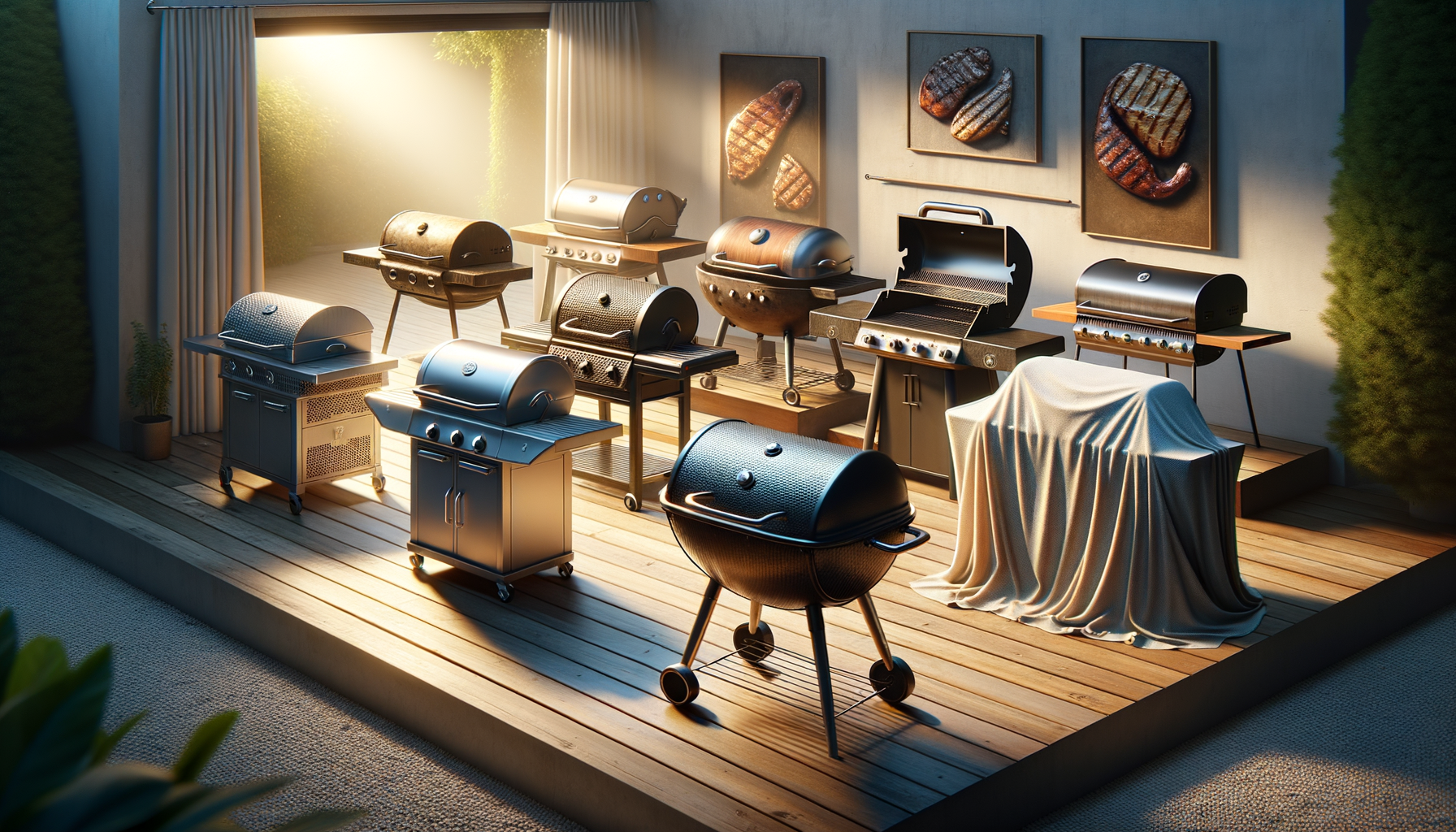
Discovering Exceptional Outdoor Grills at Great Value
Understanding the Types of Outdoor Grills
When it comes to outdoor grilling, understanding the different types of grills available is essential to making an informed purchase. The most common types include charcoal, gas, and electric grills. Each has its unique benefits and considerations. Charcoal grills are renowned for imparting a smoky flavor to food, a quality that many grill enthusiasts cherish. These grills often come at a lower initial cost, making them an attractive option for budget-conscious buyers. However, they require more time to heat up and can be less convenient in terms of temperature control.
Gas grills, on the other hand, offer the convenience of quick start-up and precise temperature control. They are ideal for those who prioritize ease of use and time efficiency. While typically more expensive than charcoal grills, gas grills often come with additional features such as side burners and rotisseries, enhancing their versatility.
Electric grills are perfect for those with limited outdoor space or restrictions on open flames. They are easy to use and clean, but may lack the traditional grilling flavor that charcoal and gas grills provide. When choosing an outdoor grill, consider your cooking preferences, space constraints, and budget to find the right fit.
Exploring Features and Specifications
Once you have decided on the type of grill that suits your needs, it’s time to delve into the features and specifications that can enhance your grilling experience. Pay attention to the build quality and materials used in construction. Stainless steel grills, for example, are highly durable and resistant to rust, making them a worthwhile investment for longevity.
Look for grills with ample cooking space to accommodate your usual cooking volume. A grill with multiple burners allows for cooking different foods at varying temperatures simultaneously, providing greater flexibility. Additionally, features such as built-in thermometers, warming racks, and side tables can significantly enhance convenience and functionality.
Consider the grill’s portability if you plan to move it around your backyard or take it on camping trips. Some grills come with wheels for easy maneuverability, while others are designed to be compact and lightweight. By evaluating these features, you can ensure that your grill meets both your practical needs and personal preferences.
Seasonal Sales and Promotions
Timing your purchase strategically can lead to substantial savings. Outdoor grills often go on sale during specific times of the year, such as the end of summer or during holiday promotions. Retailers may offer discounts to clear out inventory in preparation for the next season’s models, providing an excellent opportunity to snag a great deal.
Sign up for newsletters from major retailers to stay informed about upcoming sales events. Additionally, consider shopping during major shopping holidays, such as Black Friday or Memorial Day, when discounts on outdoor grills are commonly offered. By being patient and vigilant, you can find a high-quality grill at a fraction of the regular price.
Take advantage of price comparison tools online to ensure you are getting the most value for your money. These tools can help you track price changes over time and alert you to the best deals available. With careful planning and research, you can purchase a remarkable outdoor grill without breaking the bank.
Evaluating Customer Reviews and Ratings
Customer reviews and ratings are invaluable resources when shopping for an outdoor grill. They provide insights into the real-world performance and reliability of different models. Look for grills with consistently high ratings and positive feedback regarding durability, ease of use, and cooking performance.
Pay attention to recurring themes in reviews, such as comments on assembly difficulty or customer service experiences. These can reveal potential challenges you might face or highlight exceptional customer support from the manufacturer. Reviews often include photos and detailed accounts of users’ experiences, offering a more comprehensive understanding of the product.
While reviews are helpful, remember to consider the context of each review. A few negative reviews should not necessarily deter you if the overall consensus is positive. Use reviews as a guide to narrow down your options and make an informed decision that aligns with your needs and expectations.
Considering Warranty and After-Sales Support
When investing in an outdoor grill, it’s crucial to consider the warranty and after-sales support offered by the manufacturer. A comprehensive warranty can provide peace of mind, covering repairs or replacements for defects that may arise. Look for grills that offer at least a one-year warranty, with longer terms being preferable for added security.
Check the terms and conditions of the warranty to understand what is covered and any potential limitations. Some warranties may cover only specific parts or exclude certain types of damage. Additionally, consider the manufacturer’s reputation for customer service. A company known for responsive and helpful support can make a significant difference in your overall satisfaction with the purchase.
After-sales support, such as access to replacement parts or maintenance services, is also important. A manufacturer that offers easy access to these resources can help extend the life of your grill and ensure it remains in optimal condition. By considering these factors, you can make a well-rounded decision that ensures a positive grilling experience for years to come.

